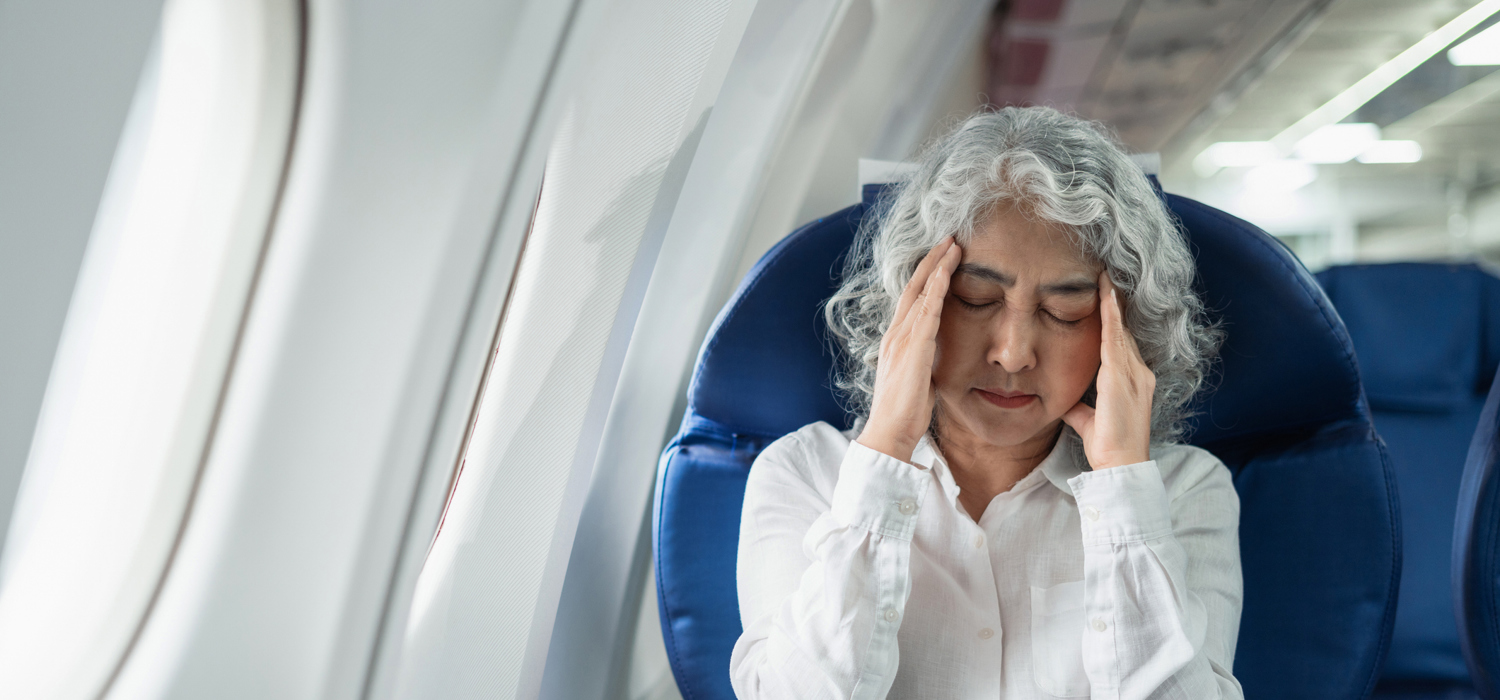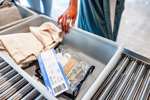Flying with a Concussion
Posted in Pre Existing Medical Condition on 20 June 2025

What You Need to Know Before You Travel
If you’ve recently suffered a concussion and are wondering, can you fly with concussion symptoms or is it safe to fly after a head injury, you’re not alone. Flying with a concussion can be safe—but only if you meet certain conditions and are cleared by your doctor.
Planning travel while recovering from a head injury can feel overwhelming—but with the right support and precautions in place, it’s often still possible to travel safely. In this guide, we’ll cover what to consider before flying after a concussion, along with tips to help make your journey smoother and safer.
Can You Fly on a Plane with a Concussion?
In most cases, you can fly with a concussion—but only once a doctor has confirmed that it’s safe for you to do so.
Flying too soon after a head injury can increase the risk of complications. Changes in cabin pressure, altitude, and physical stress during travel can potentially make your symptoms worse, especially if serious issues like a brain bleed or skull fracture are present, so you should not fly unless it is absolutely necessary.
You should only fly with a concussion if the following conditions are met:
- A few days have passed since your injury
- A doctor has cleared you to travel
- Your symptoms are improving—you’re not experiencing worsening headaches, dizziness, or nausea
- Imaging tests have ruled out any brain bleed
- No skull fracture has been diagnosed
If you’re unsure, always err on the side of caution and speak to a medical professional first. Air travel after concussion should never be undertaken without expert guidance.
Tips for Travelling with a Concussion
Once you’re cleared to fly, the next step is to plan your journey carefully. These tips will help reduce the risk of symptom flare-ups and make flying with a concussion more manageable.
1. Plan Ahead
Planning in advance can significantly ease the pressure on your brain and body during travel:
- If possible, travel with a companion who can assist if you begin to feel unwell
- Travelling solo? Airports and airlines offer support for passengers with disabilities, including help with check-in, security, and boarding
- Early boarding can reduce confusion and give you time to settle in calmly
2. Start with Short-Haul Flights
If it’s your first time flying after a concussion, try to keep things simple by choosing a flight under three hours. Short-haul flights are generally easier to manage and put less strain on your body.
- The shorter the flight, the less time you'll spend in a pressurised cabin, which can help reduce the risk of triggering symptoms
- Avoid long-haul flights (over six hours) unless it is necessary — and only travel with your doctor’s approval
- Shorter journeys also mean less time dealing with noise, light, and movement — all of which can make symptoms worse
3. Stay Fed and Hydrated
A recovering brain needs plenty of energy:
- Bring your own snacks—think fruit, nuts, and protein bars
- Avoid caffeine and alcohol before and during the flight as they can worsen dehydration and headaches
- Bring a refillable water bottle to stay hydrated throughout your journey
4. Manage Sensory Overload
After a brain injury, sensory sensitivity is common. Airports and planes can be overwhelming:
- Use dark sunglasses or an eye mask to block out harsh lighting
- Wear earplugs or noise-cancelling headphones with soothing music
- Choose a window seat where you can lean against the wall and reduce distractions
5. Prioritise Sleep
Sleep is vital for brain recovery—and jet lag doesn’t help:
- Try to nap during the flight to rest your brain
- If travelling across time zones, adjust your sleep schedule a few days ahead by 30-minute increments
- Bring a neck pillow, eye mask, and comfortable clothing to help you relax
Don’t Overlook Travel Insurance
If you've recently had a concussion, having travel insurance in place is especially important. While most trips go smoothly, symptoms can sometimes return unexpectedly — and medical care abroad can be costly. Travel insurance can help cover emergency medical treatment if needed and provide support if your plans are disrupted due to your health.
For peace of mind and to make sure you have the appropriate cover in place, you need to declare your concussion when buying your policy, so you're properly covered throughout your trip.
Travel with Confidence with Able2Travel
At Able2Travel, we understand that travelling with a pre-existing medical condition can be stressful—but it doesn’t have to be.
We offer holiday insurance for pre-existing medical conditions, including cover for a wide range of medical histories.
Choose from three levels of cover on both Single Trip and Annual Multi-Trip policies, with benefits such as:
- No Age Limit on Single Trip policies*
- Cover for thousands of pre-existing conditions
- Emergency Medical Expenses – up to £10 million
- Trip Cancellation Protection – up to £5,000
- Travel Delay & Missed Departure – up to £1,000
* Max age 79 for Worldwide including, USA, Canada, Mexico & The Caribbean
Wherever your travels take you, choose Able2Travel for a worry-free experience.
For the love of travel, choose Able2Travel.
Click here for more information on Able2Travel Travel Insurance
This article is for information and entertainment purposes only. It does not constitute advice in any way. The information provided here is correct at the time of writing however please check the latest policy wording for the latest terms, conditions, and exclusions.


